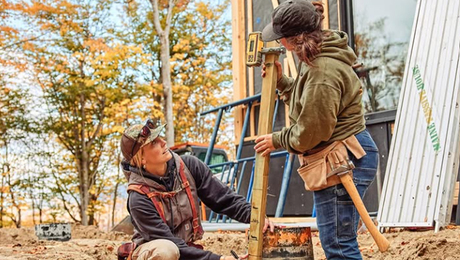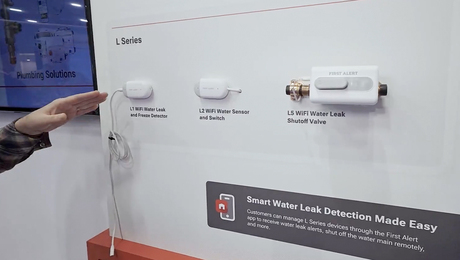
As a lifelong builder, my career began on the job site as a framer, then evolved into project management and eventually administration. Nowadays I am as good with computers and paperwork as I was back then with a nailer and a worm-drive saw. But my career, from job site to office, has always been in the context of what I call the construction culture: a frank, blue-collar work ethic with a focus on getting the job done.
In recent years, I’ve had the opportunity to apply my lifelong education in project management and administration to a whole new field in a startup telematics company. I joined the company as a partner in late 2012 and was promoted to president a few months ago. I unleashed my signature drive and focus on efficiency. Unfortunately, things didn’t go as I expected. This is not because the company floundered; it has not. In fact, we have won significant government contracts, enabling us to go from nothing to a multimillion-dollar, multinational operation very quickly. I floundered personally at my new job and almost resigned admitting total failure, but then I learned an important lesson.
Water-cooler culture
My company represents a U.S.-based satellite telecommunications service in Latin America. We bid on government contracts for GPS monitoring devices, IT services, and airtime. My background seemed ideal at the start, because I am fluent and educated in both Spanish and English, I know the culture, and I certainly understand how to organize and execute projects. What I am not good at, which nearly led to a catastrophic personal failure, is managing the subtleties of water-cooler culture–that is, the conventions of the white-collar world.
If you’ve read my blogs, you know I often expound on the multicultural workplace. My construction company served clients and hired personnel from all over the world. I understand clearly that cultural nuances have a powerful impact on sales negotiations, workplace satisfaction, and successful communication. I believed myself keenly aware of cultural perspectives and biases, and yet I blindly missed the most basic social requirements of the corporate environment.
It began with email, as many conflicts do nowadays. I have the habit of waking up very early and firing off a dozen or more emails with clarification, instruction, or questions for my colleagues. To ensure precision, my correspondence is often terse and direct. I’m organizing the project, and hence I focus on getting the work done. I have no compunction asking for what’s needed with direct instructions and calling a guy out for screwing up. I am not embarrassed to admit my own mistakes. It’s all about the job, not the personalities–right?
If you’re a contractor like me, you likely agree. When a carpenter respects the trim and his cuts are neat, the corners are tight, and the jambs hang true, how he looks, smells, or sounds remains largely irrelevant. One of my best foremen was a retired sergeant who chewed tobacco and chewed out the crew. He cursed and barked orders all day. He did a fabulous job, and I often wished I had several like him. The guys sometimes resented his manner, but everyone respected Pete. He got the job done, and it was done very well.
Although I rarely curse, and I have no military training, I have a bit of Pete in me. Confident and without any reservation to take leadership, I run the project like a dictator, giving orders and holding people accountable. Within a few weeks of assuming my new roll, I was thoroughly hated. Nobody responded to my leadership. And even allies were talking about removing me from the position.
From my perspective, my crew was inept, always screwing up. My colleagues were prissy and inefficient. Nobody seemed to take the job seriously; somehow they were OK with missing deadlines and doing poor work. That was the hardest part for me: Nobody seemed to care as long as it was not their fault. I was ready to leave, too. Why would I want to represent such a sorry bunch of losers?
Well, there’s the money. And I don’t like to fail, so I sought some advice.
A lesson learned
One of the gentlemen I spoke to is the CEO of the telematics firm I represent in Latin America. He was well aware of my problem and kindly agreed to give me an hour of advice. He hit the nail on the head when he told me of his background: As a young man, he had worked office jobs and on the job site for his father, who owned a large construction company. He was struck by the difference in employee conversation between the job site and the office. He diagnosed my years in the construction field as the problem.
In the days following our conversation, I reflected on his words and realized he was right. The white-collar, water-cooler culture is all about social mechanics. It’s a world in which personalities matter and where the ends do not justify the means. The manner of speech is more important than the substance. It’s a little like marriage, where tone alone will get you trouble. And charisma will get you farther than competence. This is a difficult cultural shift for anyone with a blue-collar background. I had little confidence I could master the white-collar world, but I had a secret weapon to draw on from my own cultural quiver. So I gave it a try.
In Spanish, my native language, there are two forms of address: one for friends and family and one for formal relationships. The formal language of vosotros and usted is a florid manner of speech couched in hyperpolite phrasing and false deference that make Spanish-language business meetings maddeningly long and inefficient. But having been spanked into learning this form of proper address as a child, I realized I could apply it with Hispanic co-workers and, in translation, with my colleagues in the United States.
I called a co-worker with whom I had recently had a conflict arising from a personnel matter. When I called and spoke in the highly inflected manner reserved for addressing Spanish nobility, the tone not only softened and warmed our colloquy, but it soon resolved the essential conflict. He gave in.
Next, I approached the president of the company whose products we sold in Latin America, a man with whom I had an important commonality: We disliked each other intensely. I began the conversation with unusual sweetness, taking my time in getting to the point. I could tell he was a little annoyed at my indirect approach, but he also appreciated my attempt to improve the relationship. After all the niceties, we got down and dirty, acknowledging what bothered us about each other. It was not pretty, but in the end, we made a pact. We have worked together better and better ever since. I strive to be polite, he strives to be responsive.
No longer lost in translation
Nowadays I begin all of my email correspondence with an effusive salutation, as if I were writing a letter in the 18th century: “Dearest so and so, I hope this brief memo finds you in good spirits and excellent health. I write to wish you well and ask about my shipment of widgets, which–and I readily admit I most likely misunderstood this–were scheduled to arrive two weeks ago. Please forgive my confusion and help me to rectify it by kindly clarifying the date I should expect my widgets to arrive. It’s always a pleasure doing business with you. Warmest regards, Fernando.”
I hate this sort of thing, and it takes me a lot longer to fire off my morning missives. It’s faster to say, “Where are my widgets? They are two weeks overdue!” But since every plea for widgets in this business requires a trek through the white-collar world, it’s important to learn the nuances of water-cooler culture. The results have been remarkable. Within a few short weeks, people were going out of their way to help me. Those least responsive in the past now go out of their way to give me updates and reply to important information. It’s one of the hardest adjustments I’ve ever tried to make. But I’m enjoying the challenge and the gentle miracle of sugarcoating. I used to scoff at this, but Mary Poppins was absolutely right about a spoonful of sugar. In the most delightful way.
Fine Homebuilding Recommended Products
Fine Homebuilding receives a commission for items purchased through links on this site, including Amazon Associates and other affiliate advertising programs.

Reliable Crimp Connectors

Handy Heat Gun

Affordable IR Camera





























View Comments
Great article. So true. Needs to be remembered when dealing with customers who are white collar as well. The mis-matched, "social mechanics" is the reason for most disputes between builder and owner, and can sure cause a lot of frustration.
Kevan Riddle, Raleigh
How do I revise a post?